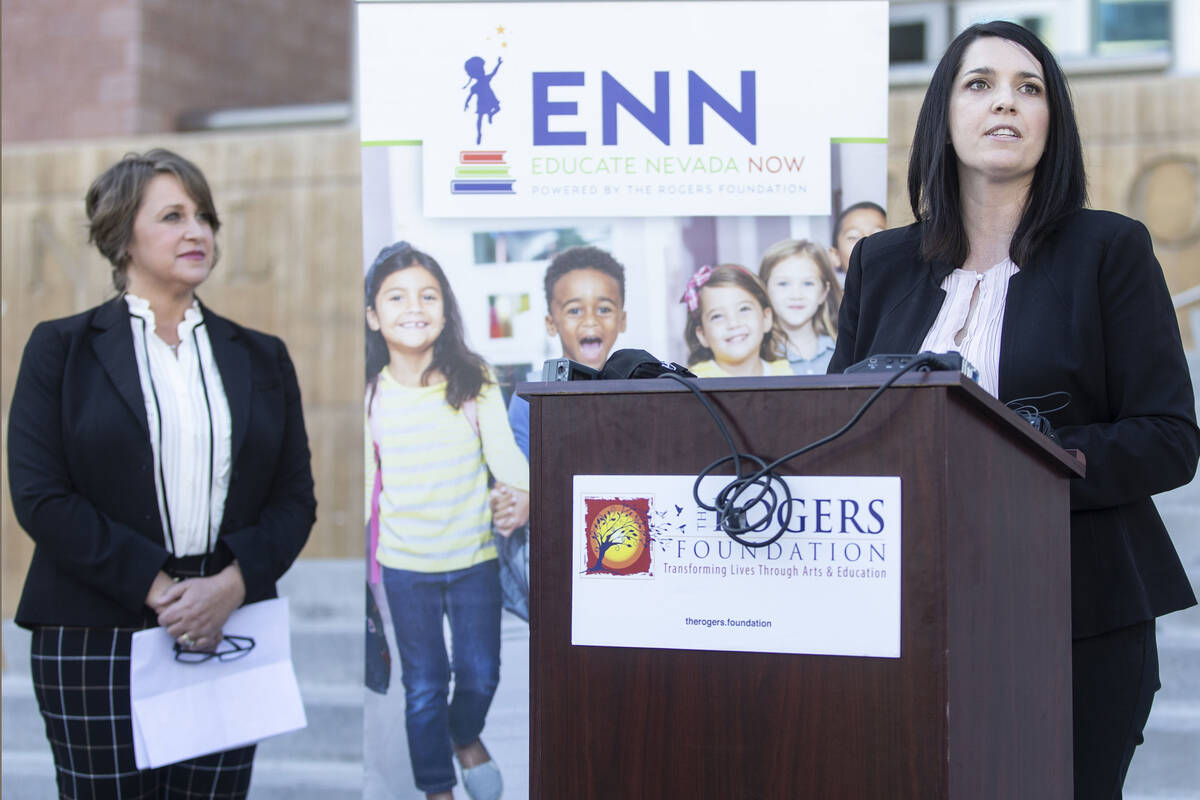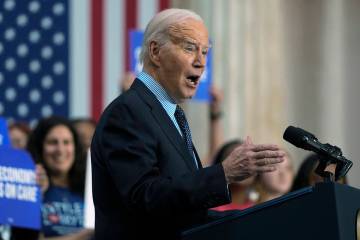EDITORIAL: Court rejects education funding lawsuit. Now, it needs to enforce separation-of-powers clause.
A lawsuit seeking to upend Nevada’s constitutional structure for allocating education dollars is finally dead.
Last month, the Nevada Supreme Court rejected a legal action brought by the advocacy group Educate Nevada Now and fronted by nine parents, who alleged that Nevada’s public education system fails students. While there’s little disagreement about that, they argued that this required judicial intervention to force lawmakers to raise education spending.
According to the lawsuit — which mirrored similar efforts by education establishment interests in other states to increase school spending — the resources Nevada has devoted to its public schools “fall egregiously short of the sufficiency required by the Nevada Constitution, the laws of this state and the pronouncements and benchmarks set by the state itself.”
As a result, the filing sought to empower judges to set “adequate” school funding levels for lawmakers. The plaintiffs contended that Nevada’s poor student outcomes stem from a lack of resources.
That is a highly dubious assertion. Twice in the past 20 years, the Legislature has passed record tax hikes specifically to fund the public schools. In addition, lawmakers in 2021 imposed a new tax on mining to fund — you guessed it — education. If more money were a panacea for lagging student achievement, there’d be no need to file a lawsuit decrying the state’s poor educational outcomes.
But the bigger issue here is that judges don’t have legislative powers, a point that should be clear to any grade-school civics student. In fact, the Nevada Constitution explicitly bestows lawmakers with the power to determine how much money to allocate for the state’s public education system. And nowhere does it articulate what defines an appropriate level of revenue.
District Court Judge James Wilson dismissed the lawsuit in October 2020. “Consistent with the separation of powers doctrine,” he wrote in a five-page decision, “the court will not substitute its judgment for that of the Legislature with respect to education policy in the state of Nevada.”
Educate Nevada Now appealed, but the Nevada Supreme Court backed up Judge Wilson.
The state of Nevada argues that “the education clauses of the Nevada Constitution do not permit the courts to participate in decisions as to what constitutes an adequate education or what level of funding is sufficient. We agree,” the 6-1 majority wrote. Further, the Nevada Constitution “does not create an obligation for the Legislature to provide public education at a particular service level or to provide specific educational outcomes,” the opinion reads.
This is a basic and welcome application of the separation of powers doctrine. The constitution splits the government’s authority between three separate but equal branches. The power to allocate tax revenue belongs to the Legislature, not the judicial branch.
The more important debate should center on how existing funds are spent. Consider the recent news that the Clark County School District is boosting starting teacher pay by $7,000. That will cost taxpayers a bundle, but there’s little reason to think it will enhance student achievement. It’s not even likely to prevent future teacher shortages. Dumping money into a broken system typically makes a broken system more expensive.
These debates are indeed important to have — at the Legislature.
A statement from Educate Nevada Now indicated the group may file other lawsuits to circumvent Carson City, which means it must have plenty of money to throw down the drain. In the meantime, the group will push a different tactic: “At this time, there is no litigation or court decision to compel lawmakers to act, but that does not mean we as a community cannot demand action. Electing leaders that are willing to do right by our students is more important than ever.”
That’s the group’s right, of course. But the idea that the judiciary can usurp the powers of the Legislature to solve some perceived injustice is dangerous and inherently flawed. Nevada’s courts shouldn’t waste time on it again.




























